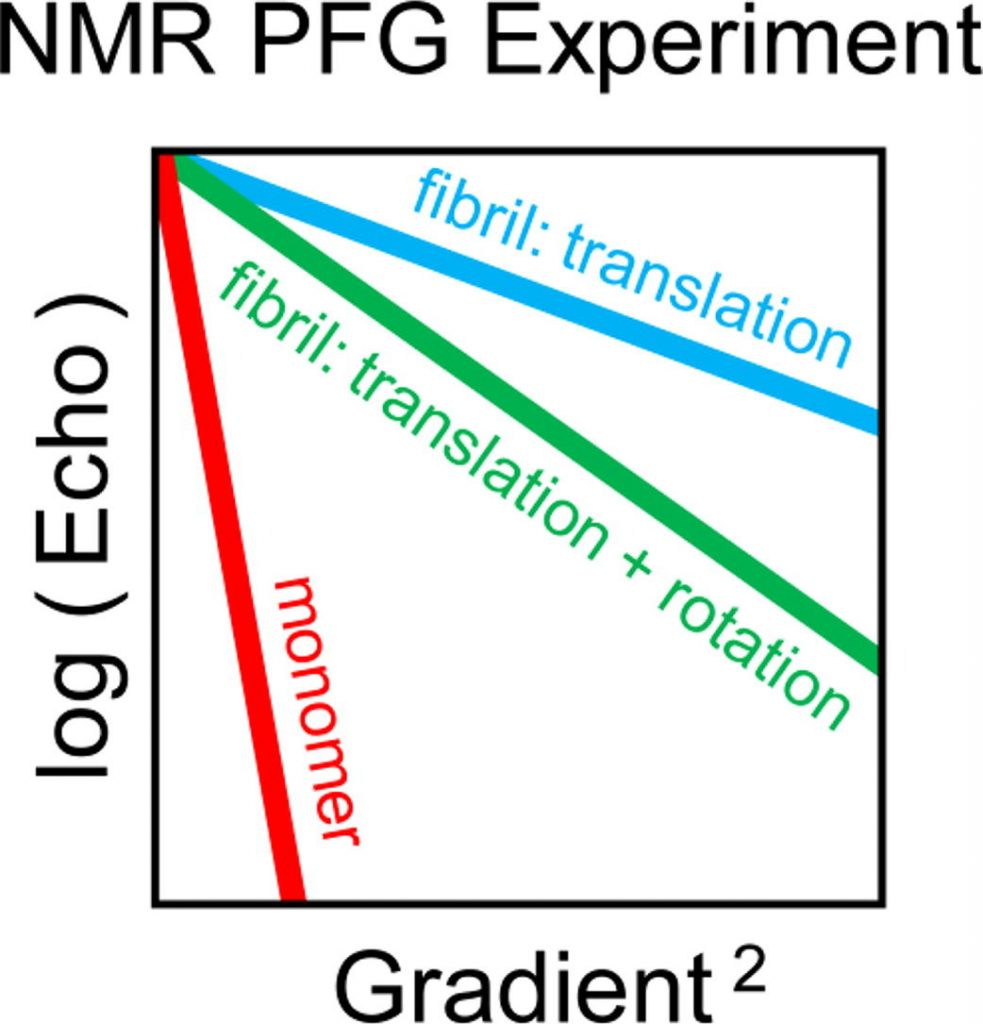
Ivan S.Podkorytov, Nikolai R.Skrynnikov
https://doi.org/10.1016/j.jmr.2022.107303
We have recently developed an analytical framework to interpret the results of pulsed field gradient (PFG) NMR experiments on solution samples of micron-sized amyloid fibrils [Angew. Chem. Int. Ed. 60 (2021) 15445–15451. https://doi.org/10.1002/anie.202102408]. Here we generalize this result by reporting a rigorous theoretical model of such experiments, implemented in a form of efficient computational scheme. In particular, the new treatment fully accounts for the anisotropy of fibrils’ translational diffusion and takes into consideration the finite length of the gradient pulses. The results hold not only for the historic spin-echo sequence, but also for the widely used stimulated echo experiment. We have found that fibrils’ rotation can attenuate the echo by a factor comparable with that of translation. However, contrary to some recent claims, the rotational mechanism cannot lead to an apparent fast-diffusion situation.
← PreviousТэги: Подкорытов, Скрынников
